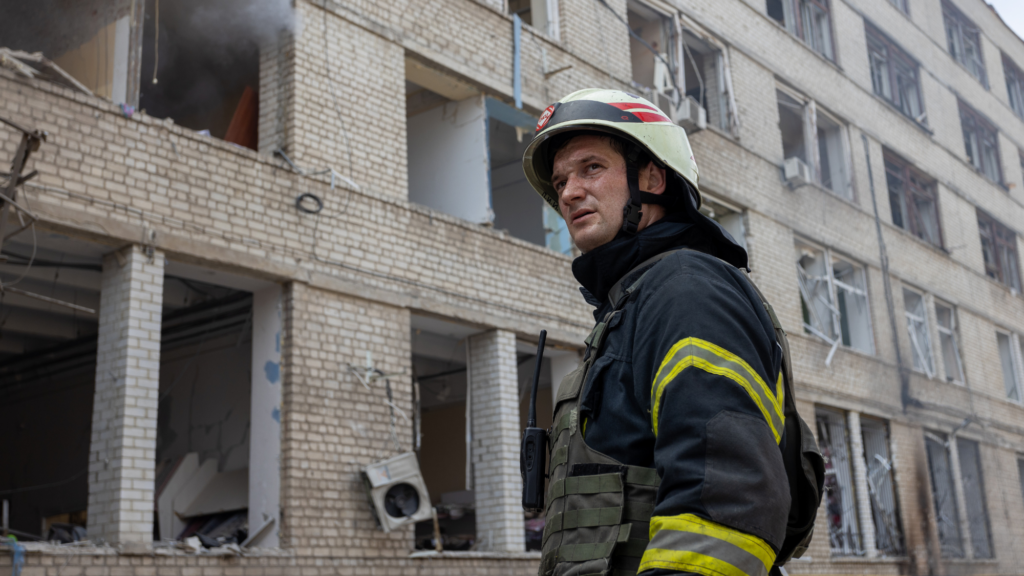Cormac McCarthy’s haunting novel, The Road, tells the story of a man and his young son journeying through a post-apocalyptic America brought to waste by a catastrophic event 10 years earlier. Signs of life are scarce. Towns are empty and houses and buildings are abandoned to looters and vandals.
The darkest side of human nature emerges, as does a sense of profound hopelessness:
“He walked out into the gray light and stood and he saw for a brief moment the absolute truth of the world. The cold relentless circling of the intestate earth. Darkness implacable. The blind dogs of the sun in their running. The crushing black vacuum of the universe.”
McCarthy describes the ravaged world of The Road as “a thing which could not be put back. Not be made right again.” This description feels strangely applicable to where we find ourselves in the lead-up to Easter this year. And the traditional Church season of Lent, a symbolic period of mourning and loss, feels more fitting than ever.
Two years of a pandemic has given us all, to varying degrees, a disorienting sense of uncertainty, disappointment, even heartbreak, with collapsed businesses, missed weddings and funerals, and the cruelty of patients suffering in hospital scared and alone without the possibility of visits from family. A generation of young people’s natural youthful optimism has been eroded.
And now war.

I’ve been avoiding reading stories about Ukraine. It just feels like there’s too much bad news going around to be absorbed in any healthy manner. But recently I allowed myself to read a bunch of stories from The New York Times about women and children fleeing their homes in the face of the Russian onslaught, and overnight, becoming refugees.
I was right to be wary. These were disturbing accounts of narrow escapes from bombed-out apartment complexes, children’s eyes being shielded from streets scattered with bodies, civilians being gunned down as they sought escape, and desperate queuing at border posts begging the mercy of foreign soldiers.
Photographs of the utter destruction of towns like Bucha and Mariupol, and the chaos of the deliberate bombing of hospitals and schools, speak to an astonishing lack of regard for life.
Since then, the stories have only gotten worse. We are now hearing of the most unspeakable war crimes that seem to belong to a distant, barely imaginable past.
Sometimes darkness seems impenetrable. The Easter story, worthy of a close look, is one of betrayal, brutality and cruel indifference to human suffering; political power deployed as a means of self-protection and irrational exploitation. The echoes ring loud and clear down through the centuries.
The “Good Friday” crucifixion of Christ is all about the most profound identification of God with human suffering. Pope Francis’s Palm Sunday address from St Peter’s Square focused on the “folly of war” whereby, in his estimations, “Christ is crucified yet another time.”
“Christ is once more nailed to the cross in mothers who mourn the unjust death of husbands and sons. He is crucified in refugees who flee from bombs with children in their arms. He is crucified in the elderly left alone to die; in young people deprived of a future; in soldiers sent to kill their brothers and sisters.”
In other words, all these deprivations represent an afront to God.
The hope of the Jesus story for a contemporary audience is simply this: “Far more can be mended than you know.”
Of course, Francis believes in more than just God’s “identification” with our plight. He is convinced that Easter Sunday and the claim of resurrection presents a reason, despite everything, to hope for restoration, healing, and new beginnings. The world that looks so comprehensively broken that it “may not be made right again” is given another chance. British writer Francis Spufford says the message and the hope of the Jesus story for a contemporary audience is simply this: “Far more can be mended than you know.”
After what we have all endured in the last few years, that message will resonate this Easter weekend – not only in Ukraine but well beyond.
Simon Smart is Executive Director of the Centre for Public Christianity.
This article first appeared in The Canberra Times.